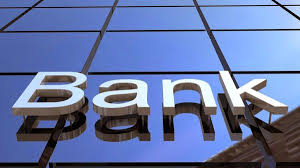The Nigerian banking sector witnessed a significant surge in fee and commission income in 2024, with nine major banks collectively generating N2.59 trillion. This remarkable performance underscores a transformative shift in the industry’s revenue model, driven by the accelerating adoption of digital banking services and a broader move towards a cashless economy. The nine banks analyzed, including industry giants like United Bank for Africa, Access Holdings, and Zenith Bank, all reported substantial growth in this income stream, demonstrating a widespread trend across the sector. This shift signifies not only a change in how Nigerians conduct financial transactions but also how banks generate revenue, moving away from traditional interest-based income towards a more diversified and potentially more stable income base.
United Bank for Africa led the pack with a staggering N589 billion in fee and commission income, representing a 91.8% year-on-year increase. This impressive growth was fueled by a confluence of factors, including increased foreign currency transaction fees, higher credit-related income, and the expansion of its digital services footprint across its pan-African operations. Access Holdings followed closely with N514.1 billion, an 85.4% surge driven primarily by the bank’s strategic focus on expanding its digital banking offerings, particularly in credit-related services. These two banking behemoths exemplify the sector’s success in leveraging digital transformation to drive revenue growth.
Other major players also recorded substantial gains. First HoldCo Plc saw a 38.2% increase, reaching N304.5 billion, attributed to higher demand for digital services and foreign exchange transactions. Guaranty Trust Holding Company and Zenith Bank both achieved impressive growth rates of 78.3% and 89.4%, respectively, with their fee and commission incomes reaching N221.2 billion and N206.9 billion. These results solidify the notion that digital banking and related services are no longer niche offerings but rather core components of modern banking operations.
Even mid-sized banks like Stanbic IBTC Holdings, Fidelity Bank, and FCMB Group experienced significant growth in this revenue stream, reporting increases of 54.5%, 30.6%, and 29.3% respectively. This illustrates how the trend towards digital banking is not limited to the largest institutions but is permeating the entire sector. Perhaps the most striking example of this growth is Wema Bank, which recorded a remarkable 123.7% surge in fee and commission income, reaching N55.6 billion. This demonstrates the transformative potential of digital banking, particularly for smaller players seeking to expand their market share and revenue streams.
The underlying driver of this widespread growth is the ongoing transition from a cash-based economy to a cashless one, fueled by increasing adoption of digital banking platforms. As Professor Olusegun Ajibola of Babcock University notes, the proliferation of online banking, point-of-sale terminals, and mobile transfers has significantly expanded access to financial services and altered the landscape of financial transactions in Nigeria. This shift has created new revenue opportunities for banks, allowing them to charge fees for services previously conducted through cash transactions.
This shift towards fee and commission income represents a fundamental change in the banking industry’s revenue model. As Professor Ajibola observes, banks are strategically moving away from relying primarily on interest income from loans and advances, and embracing a more diversified revenue stream. This new model aligns with global banking trends, where fee-based income is increasingly important for sustained profitability and resilience. The rise in fee and commission income not only allows Nigerian banks to recover the costs associated with building and maintaining digital infrastructure but also offers a more sustainable and adaptable revenue stream in a rapidly evolving financial landscape. This transition is crucial for the long-term health and competitiveness of the Nigerian banking sector in the global financial arena.


